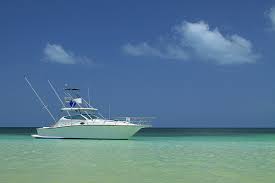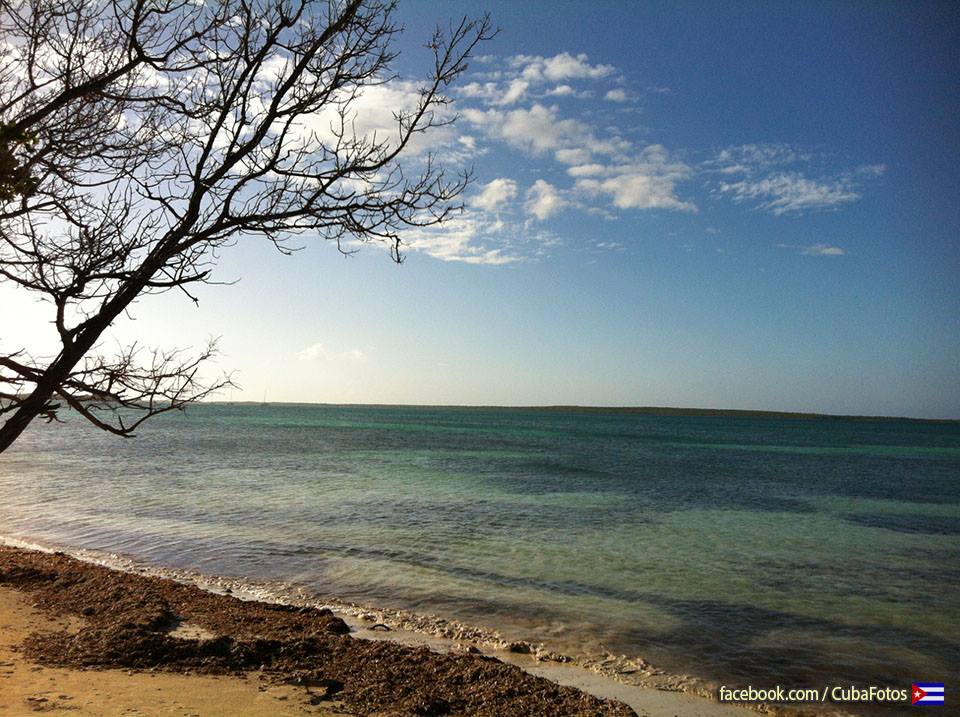CUBA: LAST FRONTIER IN NAUTICAL TOURISM. THE YACHTS.
Despite the reality that private yachts and non-American crew can and do travel to Cuba, the recent change in travel restrictions for Americans may be the biggest boost yachting has seen since the tech bubble.
In a session titled “Cuba: The Last Frontier” at the Superyacht Summit yesterday, a panel of yachting industry people indicated that once Americans are free to visit, the impact on yachting — not to mention the island — will be enormous.
“There’s a transformation going on right now in Cuba,” said Antonio Zamora, a foreign investment attorney in Miami and a Cuban-American. “You ask about nautical tourism, but without the United States, there is no nautical tourism. Maybe there are two boats from Spain, one boat from France. And that’s it. I see 30-40,000 boats going to Cuba [from the U.S.] each year.”
“We spoke to the commercial director of Gaviota Marina Varadero, and he said ‘We’re waiting for you’,” said Marilyn DeMartini, who recently traveled to the island nation and wrote about it for an upcoming issue of Invictus magazine. “The 1,000 slips they are building were empty, except for a handful of Canadian and European boats.”
The biggest impact will be on the charter market, said Bob Saxon, president of International Yacht Collection in Ft. Lauderdale. While private yachts visit Cuba, the charter fleet has resisted because of the legal restrictions on Americans.
“The charter market is a $1 billion market now,” Saxon said. “Ten years ago, it was $300 million. And there are 350 yachts over 100 feet spending the season in the Caribbean. You look in [St. Maarten’s Simpson Bay] and it’s wall-to-wall white boats doing nothing. It used to be that 8-9 weeks was the average … now the average is 3-4 weeks.
.. “With Cuba, you have the proximity to the U.S.” as well as the newness of the cruising grounds, he said. “When restrictions are dropped, you will see a marked shift in the charter market.”
About 78 percent of people who buy or build a yacht have chartered at least once, he said, so an easing of restrictions that boosts the charter market will have a ripple effect throughout yachting.
“I see fully loaded boats coming out of Florida on their way to Cuba to enjoy the cruising,” he said. “The ultimate effect will be slow coming, but as facilities grow, it will come. That means jobs, and it’s great for the charter market.”
The island is not yet ready to handle large yachts. Its existing marinas can handle yachts up to about 150 feet, but electrical and sewage systems are not what large yachts are used to. Yachts larger than 150 feet must anchor out.
“People say there is no infrastructure, but the yachting infrastructure will happen as a result of demand,” Saxon said.
“You don’t need infrastructure,” said Michael Reardon, a yacht management consultant in Ft. Lauderdale and session attendee. “There are lots of places to anchor out. The north side is protected and the south side has some of the best diving in the world. It’s not for the faint of heart, but for the adventurous, the island is huge and it [cruising there on a yacht] can be done.”
U.S. President Obama announced an easing of restrictions on Americans traveling to Cuba, but tourism is still not an accepted facet among the 12 categories of travel. Americans can travel to participate in events, visit relatives, do professional research and go on educational trips, for example, and no longer need a license to travel for those kinds of reasons.
Going by boat is a little different, according to Zamora. To do so, the boat must have less than 10 percent American components, be registered outside the U.S., and have a purpose for the visit, such as environmental or professional research, or to participate in an event such as a fishing tournament.
Boats built in the U.S. or with more than 10 percent American components must obtain a license to visit Cuba by filling out a SNAP-R with the Bureau of Industry and Security with the U.S. Department of Commerce. And they need a specific reason.
“The problem is not in Cuba, it’s returning to the U.S.,” said Leonard Moecklin, who provides onboard security for yachts and has applied three times in the past six years for permission to run a passenger ferry to Havana.
A law has been proposed in the U.S. to eliminate tourism as a restriction, but it has not yet been voted on.
“It will pass,” Zamora said. “If not this year, then next, but it will pass. I think it’s awful that Americans are restricted from traveling someplace. It’s offensive to Americans. It doesn’t make any sense.”
The Triton Today/Lucy Chabot Reed, Editor/Excerpts/InternetPhotos/TheCubanHistory.com
Comments are welcome: lucy@the-triton.com.
The Cuban History, Hollywood.
Arnodo Varona, Editor.
CUBA: LA ÚLTIMA FRONTERA EN TURISMO NÁUTICO. LOS YATES.
A pesar de la realidad que los yates privados y la tripulación americanas no pueden viajar a Cuba, el reciente cambio en las restricciones de viaje para los estadounidenses puede ser el mayor impulso en yachting que se haya visto desde la burbuja tecnológica.
En una sesión titulada “Cuba: La última frontera” en la Cumbre Superyacht ayer, un grupo de gente de la industria de yates indicó que una vez que los estadounidenses sean libres de visitar a Cuba, el impacto en la navegación a vela- por no hablar de la isla – será enorme.
“Hay una transformación pasando ahora mismo en Cuba”, dijo Antonio Zamora, un abogado de la inversión extranjera en Miami y un cubano-estadounidense. “Usted pregunta sobre el turismo náutico, pero sin Estados Unidos, no hay turismo náutico. Tal vez hay dos barcos de España, uno en barco desde Francia. Y eso es todo. Veo 30-40.000 barcos ir a Cuba [de los EE.UU.] cada año “.
“Hablamos con el director comercial de Marina Gaviota Varadero, y él dijo ‘Estamos esperando por ti'”, dijo Marilyn DeMartini, quien recientemente viajó a la isla y escribió sobre ella para un próximo número de la revista Invictus. “Los 1.000 resbalones que están construyendo estaban vacías, a excepción de un puñado de barcos canadienses y europeos.”
El mayor impacto tendrá en el mercado de vuelos chárter, dijo Bob Saxon, presidente de International Yacht Collection en Ft. Lauderdale. Mientras yates privados visitan Cuba, la flota de la carta se ha resistido a causa de las restricciones legales a los estadounidenses.
“El mercado de fletes es un mercado de mil millones dólares ahora”, dijo Saxon. “Hace diez años, que fue de $ 300 millones. Y hay más de 350 yates de 100 pies que pasan la temporada en el Caribe. Te ves en [St. Simpson Bay de Maarten] y de pared a pared barcos blancos no hacer nada. Solía ser que 8-9 semanas era la media … ahora el promedio es de 3-4 semanas.
.. “Con Cuba, usted tiene la proximidad a los EE.UU.”, así como la novedad de los argumentos que cruzan, dijo. “Cuando se eliminan las restricciones, usted verá un marcado cambio en el mercado de vuelos chárter.”
Alrededor del 78 por ciento de las personas que compran o construyen un yate han fletado al menos una vez, dijo, por lo que una flexibilización de las restricciones que impulsa el mercado de vuelos chárter tendrá un efecto dominó en toda la vela.
“Veo a los barcos a plena carga que sale de la Florida en su camino a Cuba para disfrutar del crucero”, dijo. “El efecto final vendrá lento, pero a medida que crecen las instalaciones, todo llegará. Eso significa puestos de trabajo, y es muy bueno para el mercado de vuelos chárter “.
La isla aún no está listo para manejar grandes yates. Sus puertos deportivos existentes pueden manejar embarcaciones de hasta 150 pies, pero los sistemas de electricidad y alcantarillado no son lo grandes yates están acostumbrados. Yates de más de 150 pies deben anclar a cabo.
“La gente dice que no hay infraestructura, pero la infraestructura yachting ocurrirán como resultado de la demanda”, dijo Saxon.
“Usted no necesita infraestructura”, dijo Michael Reardon, un consultor de gestión de yates en Ft. Asistente Lauderdale y sesión. “Hay un montón de lugares para anclar a cabo. El lado norte está protegida y el lado sur tiene algunos de los mejores puntos de buceo en el mundo. No es para los débiles de corazón, pero para los más aventureros, la isla es enorme y [crucero allí en un yate] se puede hacer “.
El presidente Obama anunció una flexibilización de las restricciones a los estadounidenses que viajan a Cuba, pero el turismo todavía no es una faceta aceptada entre las 12 categorías de productos turísticos. Los estadounidenses pueden viajar a participar en eventos, visitar a sus familiares, hacer investigación profesional e ir en viajes educativos, por ejemplo, y ya no necesitan una licencia para viajar por ese tipo de razones.
El ir en barco es un poco diferente, según Zamora. Para ello, el barco debe tener componentes estadounidenses de menos de 10 por ciento, en un registro fuera de los EE.UU., y tienen un propósito de la visita, tales como investigación ambiental o profesional, o para participar en un evento como un torneo de pesca.
Barcos construidos en los EE.UU. o con componentes estadounidenses más del 10 por ciento deben obtener una licencia para visitar Cuba rellenando un SNAP-R con la Oficina de Industria y Seguridad del Departamento de Comercio de Estados Unidos. Y necesitan una razón específica.
“El problema no está en Cuba, es regresar a los EE.UU.”, dijo Leonard Moecklin, que ofrece a bordo de la seguridad para yates y ha solicitado en tres ocasiones en los últimos seis años de permiso para ejecutar un ferry de pasajeros a La Habana.
Una ley ha sido propuesto en los EE.UU. para eliminar el turismo como una restricción, pero aún no ha sido votada.
“Va a pasar”, dijo Zamora. “Si no es este año, entonces la próxima, pero pasará. Creo que es terrible que los estadounidenses están restringidos de viajar a algún lugar. Es ofensivo para los estadounidenses. No tiene ningún sentido “.
El Triton Hoy / Lucy Chabot Reed, Editor / Extractos / InternetPhotos / TheCubanHistory.com
Los comentarios son bienvenidos: lucy@the-triton.com .
The Cuban History, Hollywood.
Arnodo Varona, Editor.



 CUBA: Last Frontier in Nautical Tourism. The Yachts. ** CUBA: Última Frontera en Turismo Náutico. Los Yates.
CUBA: Last Frontier in Nautical Tourism. The Yachts. ** CUBA: Última Frontera en Turismo Náutico. Los Yates.



